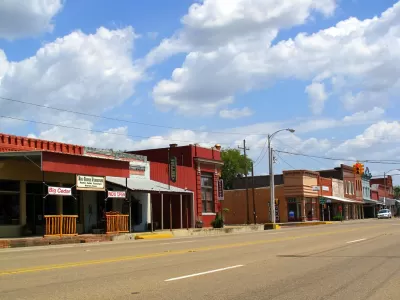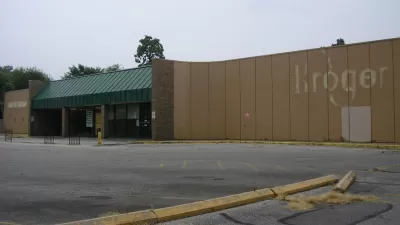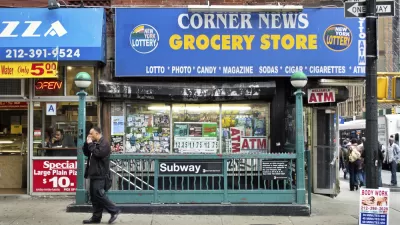When a town doesn’t have a grocery store, it means people don’t have access to food. But grocery stores also play an essential social and economic role in rural places. Community stores are trying to fill in the void.

Jack Healy writes about the growing problem of food deserts in small towns across the country as grocery stores shut down and dollar stores proliferate. "The loss of grocery stores can feel like a cruel joke when you live surrounded by farmland. About 5 million people in rural areas have to travel 10 miles or more to buy groceries, according to the Department of Agriculture."
Some communities are responding by starting up what are referred to as "community stores," essentially co-ops that are stocked with staples but also sell locally produced products. A few states offer financial assistance, such as tax credits and loans, for small-town markets in food deserts. "But mostly, the people setting up crowd-funding sites to buy vegetable coolers and negotiating wholesale rates with huge grocery chains say they are stumbling around with little assistance and no map," says Healy.
In additional to the financial challenges, organizers say getting these operations off the ground is not easy. For one, they have to convince residents to stop shopping at Walmart and dollar stores, and they have to find wholesalers who will provide them the stock they need. But, they say, grocery stores are key to keeping these towns alive. "Their exodus has left rural towns worried about how they can hold on to families, businesses and their future if there is nowhere to buy even a banana," notes Healy.
FULL STORY: Farm Country Feeds America. But Just Try Buying Groceries There.

Manufactured Crisis: Losing the Nation’s Largest Source of Unsubsidized Affordable Housing
Manufactured housing communities have long been an affordable housing option for millions of people living in the U.S., but that affordability is disappearing rapidly. How did we get here?

Americans May Be Stuck — But Why?
Americans are moving a lot less than they once did, and that is a problem. While Yoni Applebaum, in his highly-publicized article Stuck, gets the reasons badly wrong, it's still important to ask: why are we moving so much less than before?

Research Shows More Roads = More Driving
A national study shows, once again, that increasing road supply induces additional vehicle travel, particularly over the long run.

Judge Halts Enforcement of Anti-Homeless Laws in Grants Pass
The Oregon city will be barred from enforcing two ordinances that prosecute unhoused residents until it increases capacity and accessibility at designated camping sites.

Advancing Sustainability in Los Angeles County Schools
The Los Angeles County Office of Education’s Green Schools Symposium brings together educators, students, and experts to advance sustainability in schools through innovative design, climate resilience strategies, and collaborative learning.

Using Old Oil and Gas Wells for Green Energy Storage
Penn State researchers have found that repurposing abandoned oil and gas wells for geothermal-assisted compressed-air energy storage can boost efficiency, reduce environmental risks, and support clean energy and job transitions.
Urban Design for Planners 1: Software Tools
This six-course series explores essential urban design concepts using open source software and equips planners with the tools they need to participate fully in the urban design process.
Planning for Universal Design
Learn the tools for implementing Universal Design in planning regulations.
City of Moreno Valley
Institute for Housing and Urban Development Studies (IHS)
City of Grandview
Harvard GSD Executive Education
NYU Wagner Graduate School of Public Service
City of Cambridge, Maryland
Newport County Development Council: Connect Greater Newport





























